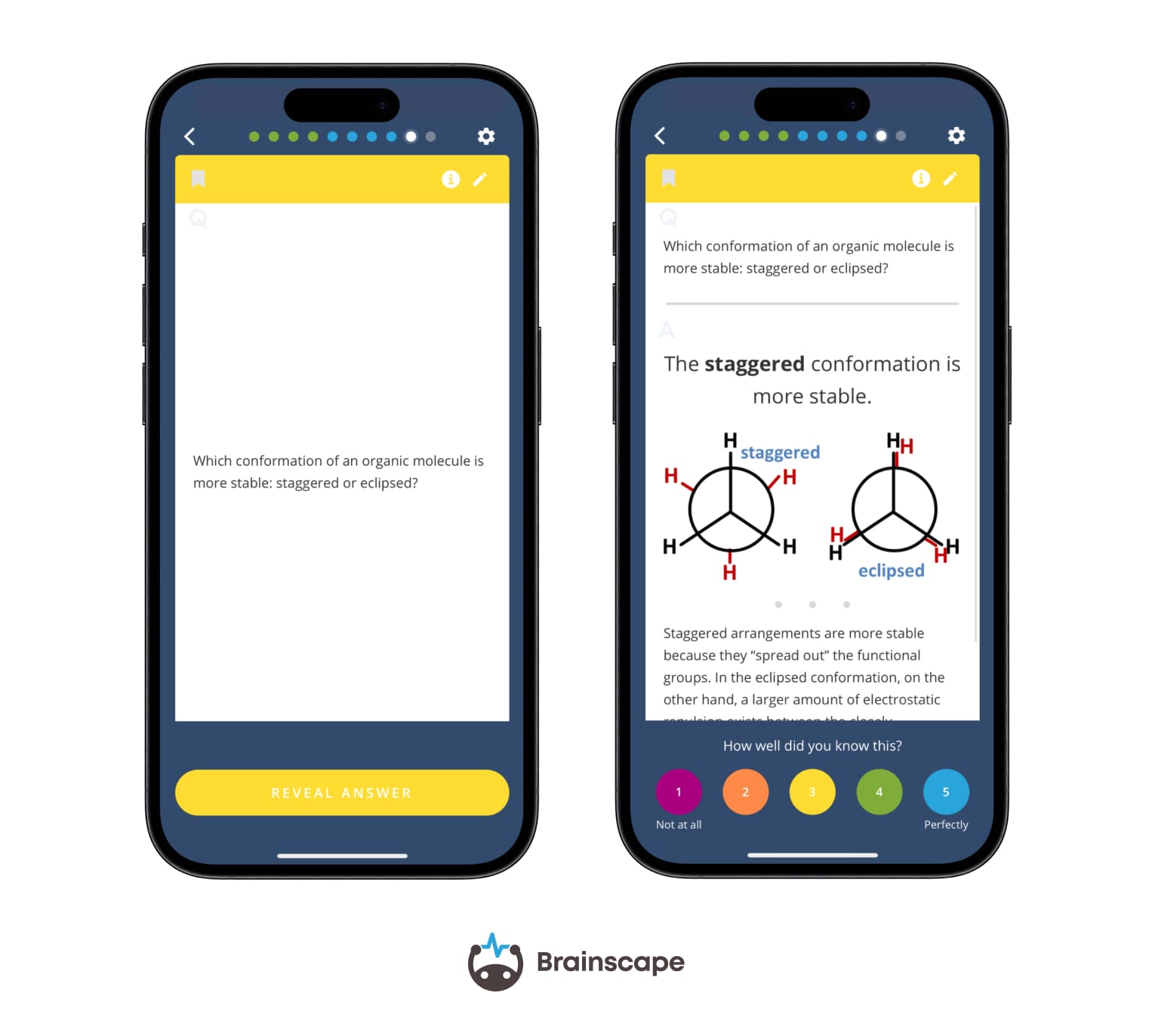MCAT study groups feel sooooo much better than solo studying. For starters, they commit you and hold you accountable to studying; they can help you attack your weaknesses; and, bonus, it’s fun studying with other people.
But (big but) MCAT study groups can also be a terrible distraction. The real risk with studying with other people is that you don’t learn nearly as efficiently as you do when you’re on your own.
Still, though, there is a time and place for an MCAT study buddy, and in this article, we’re going to tell you how you can use MCAT study groups as your secret weapon for kicking butt in the exam!
What Are The Benefits Of MCAT Study Groups?
As I touched on previously, MCAT study groups can be a huge help when you’re in the midst of your study prep:
Advantage 1: Creating Motivation And Accountability
A good MCAT study group will create motivation and accountability. Sure, you’ll have to keep studying on your own using books and effective tools like digital flashcards from Brainscape or Anki, but the outside pressure of a study group can compel you to keep up the momentum when you start buckling under the pressure.
Advantage 2: Teaching What You Know
Study groups give you the opportunity to teach what you know well to your MCAT study buddies, which is one of the most effective tools for permanently memorizing information. In med school, they say, “See One, Do One, Teach One.” It’s that final step—teach one—that really solidifies the learning.
Advantage 3: Getting Help On Your Weaknesses
At the same time, MCAT study groups make it easy to actively seek help for your knowledge weaknesses, allowing you to drill down on the concepts or facts you’re struggling with.
These are some pretty juicy advantages! But you have to remember:
Studying in groups can HURT your studies if you don't do it right.
How do you do it right? I’m so glad you asked because next, we’re going to look at the most beneficial and efficient ways to study for the MCAT in a group!
How Do You Run An MCAT Study Group?
We suggest you follow the Rule of Three: Three people. Three meetings a week. Three-hour meetings.
- Three people means that if one person can’t make it, you still have a study buddy. The more people who attend, however, the more distracting and disorganized things become (and the harder it’ll be to schedule meetings).
- Three meetings per week will allow you to work on individual prep work in between MCAT study groups, which is actually what you should be dedicating MOST of your prep time to.
- Three-hour meetings are key because it is hard to stay focused and productive for longer than three hours. Anything longer than this will simply be inefficient.
Now, during the MCAT study group session itself, the goal is to create accountability and to teach each other the material. So you should create a study plan together where each person is given an assignment to prep and teach to the group. You might say something like this:
“Okay, so over the weekend, we will all complete the first three chapters in the biochemistry book. It’ll be my job to carefully review the practice passage about amino acids and to teach that passage to the group. Rob, it’ll be your job to prep and teach the enzymes passage, and Ameer, you can prep and teach the gluconeogenesis passage. Then, on the way home, we'll all review this content on flashcards.”

Just remember: the goal of MCAT study groups is to solidify what you’ve learned during your solo study sessions and address the areas of knowledge you’re shaky on. It’s not to learn stuff from scratch. So, you need to go into your sessions PREPARED. And if an MCAT study buddy doesn’t do the necessary work, don’t waste any further time on him or her. This is your career, and you sure as hell ain't carrying anybody else’s weight!
This brings me to my final point of advice ...
When Do You Need To Break Up With An MCAT Study Buddy Or Group?
It happens, and it can be uncomfortable, but don’t be afraid to “break up” with an MCAT study buddy or group if things aren’t going well. Your number one priority is the MCAT, and if you aren’t getting what you need out of the group—if they aren’t preparing properly, are late, disorganized, or have constantly conflicting schedules—there’s no reason you should waste time trying to make it work.
This doesn’t mean you can’t be friends or friendly with these people anymore! Just politely explain: “Hey! You guys have been great, but I won’t be joining this study group anymore.” You could even say, “I have a little too much fun with you and I need to get serious sooooooo, byeeeeee!” if it’ll soften the blow.
That, or you could just ghost them. But we never recommend the cowardly path here at Brainscape.
Also, don’t feel limited by geography when looking for a decent MCAT study group. There are tons of free online collaboration tools that can help you look for good study partners.
